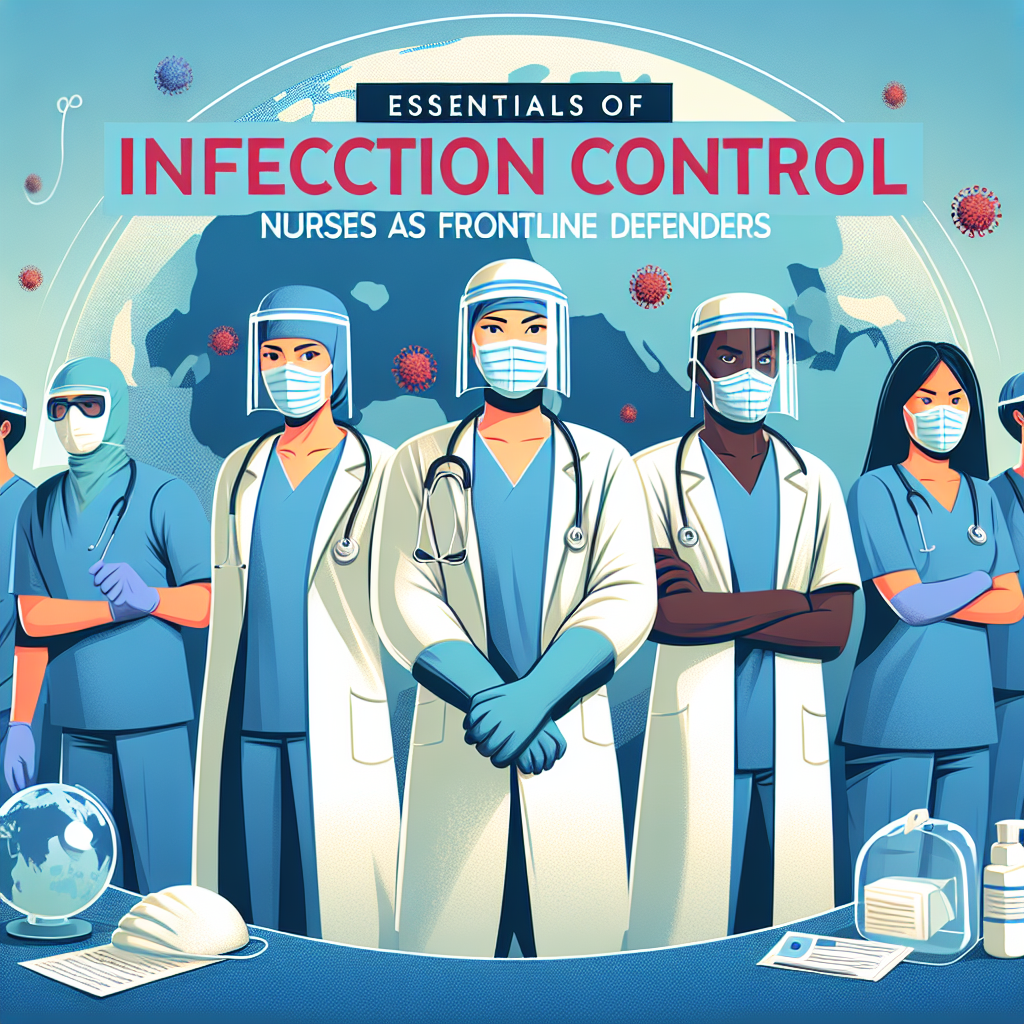In today’s rapidly changing healthcare landscape, infection control has become a cornerstone of patient safety and quality care. Nurses, as the frontline defenders against infections, play a crucial role in implementing effective infection control measures. This article delves into the essentials of infection control, highlighting the responsibilities of nurses and practical strategies to enhance their effectiveness.
Understanding Infection Control: A Vital Aspect of Healthcare
Infection control encompasses a range of practices designed to prevent the spread of infectious diseases within healthcare settings. With the rise of antibiotic-resistant bacteria and the emergence of new pathogens, the importance of strict infection control protocols cannot be overstated. Nurses are often the first line of defense in these efforts, managing and mitigating risks that can put patients and staff alike in jeopardy.
The Role of Nurses in Infection Control
Nurses are integral to the infection control framework within hospitals and clinics. Their responsibilities include:
- Monitoring Infection Rates: Nurses track and report infection incidents, helping to identify outbreaks and improve response strategies.
- Educating Patients and Families: Nurses communicate the importance of hygiene practices, vaccination, and adherence to prescribed treatments, empowering patients to take charge of their health.
- Implementing Protocols: Nurses are responsible for adhering to and enforcing established infection control protocols, such as proper hand hygiene and the use of personal protective equipment (PPE).
The Importance of Hand Hygiene
The First Line of Defense
Hand hygiene is the simplest yet most effective way to prevent infections. The World Health Organization (WHO) emphasizes the importance of handwashing in healthcare settings. Nurses must practice and promote:
- Regular Handwashing: Using soap and water or alcohol-based hand sanitizers, especially before and after patient contact.
- Teaching Techniques: Nurses should educate both colleagues and patients on proper handwashing techniques to foster a culture of cleanliness.
Creating a Culture of Accountability
Infection control is a shared responsibility. Nurses can lead by example, creating a workplace culture that prioritizes hygiene. Regular training sessions and discussions can reinforce the significance of hand hygiene among all healthcare staff.
Protective Equipment: The Shield Against Infections
Understanding the Role of PPE
Personal protective equipment (PPE) serves as a barrier to protect healthcare workers from exposure to infectious agents. Nurses must be well-versed in selecting and utilizing the right PPE for various situations, including:
- Gloves: Worn during any procedure that may involve contact with blood or other bodily fluids.
- Masks and Face Shields: Essential in preventing respiratory infections, particularly in situations with coughing or sneezing patients.
- Gowns: Used to protect clothing and skin when dealing with hazardous materials or potentially infectious patients.
Training and Education
Regular training in the correct use of PPE is vital. Nurses must be equipped with knowledge on when to don and doff these items to minimize the risk of transmission.
Environmental Cleaning: Maintaining a Safe Space
The Importance of a Clean Environment
Infection control extends beyond individual practices; environmental cleaning is crucial for minimizing infection risks. Nurses should ensure that:
- High-Touch Surfaces Are Regularly Cleaned: Items like doorknobs, bedrails, and medical equipment should be sanitized frequently.
- Protocols for Terminal Cleaning Are Followed: After a patient is discharged or transferred, thorough cleaning and disinfection must take place to eliminate any potential infectious agents.
Engaging Support Staff
Nurses can collaborate with housekeeping teams to ensure high standards of cleanliness are maintained. This teamwork is essential in creating a safe environment for patients and staff alike.
Education and Continuous Training
Staying Informed in a Changing Landscape
Infection control practices are constantly evolving as new threats emerge. Continuous education and training are critical for nurses to stay updated on the best practices and emerging trends. This commitment to lifelong learning ensures that nurses are well-prepared to confront current and future healthcare challenges.
Encouraging a Culture of Learning
Healthcare institutions should foster a culture that encourages nurses to attend workshops, seminars, and professional development courses. Sharing knowledge among peers can create a supportive environment that enhances overall infection control efforts.
Conclusion: The Heart of Infection Control
Nurses are more than just caregivers; they are frontline defenders in the battle against infections. By understanding the essentials of infection control—from hand hygiene to environmental cleaning—nurses can protect their patients, colleagues, and themselves. Through continuous education, proper use of PPE, and collaborative efforts, they can create a safer healthcare environment.
The importance of infection control in healthcare cannot be overstated, and with dedicated nurses leading the charge, we can move toward a future where safe, infection-free healthcare is the norm rather than the exception. Let’s champion the essential role of nurses in infection control and celebrate their unwavering commitment to patient safety.


